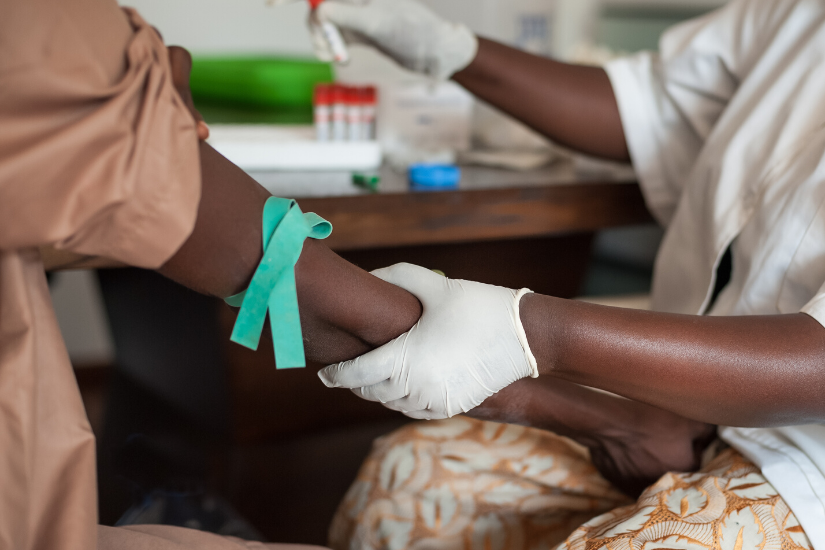New research shines a light on the health care seeking behaviours of Ebola survivors in Sierra Leone, West Africa.

Though the outbreak of Ebola virus disease may have ended in West Africa, the effects of it are still being felt by survivors.
Complications, ranging from severe headaches to joint pain, and even loss of eyesight and hearing, can manifest amongst survivors of the disease.
But how have survivors coped with these new complications?
PhD candidate Peter Bai James is investigating the health care seeking behaviours of survivors of Ebola virus disease in Sierra Leone.
The first of its kind, his recently published study [opens external site] looks at Ebola survivors’ preferences for conventional and complementary medicine, as well as the factors contributing to these behaviours.
Peter identified three key motivations in the health care seeking behaviours of Ebola survivors: external factors related to health systems and access, personal factors, including traditional practices and beliefs, as well as stigma.
He found that, while conventional medicine was initially preferred, survivors began to turn to traditional medicine or alternative treatments when their health care needs were not adequately addressed by the conventional health care system.
This was largely due to the high costs associated with conventional treatment, perceived ineffectiveness of biomedical treatment, availability and access to care as well as negative attitudes from health care workers.
Peter says that this research highlights the need for a comprehensive approach to the development and implementation of new programs aimed at improving the health status of Ebola survivors in Sierra Leone, as well as the revision of existing policy initiatives.
For instance, while Ebola survivors were included as beneficiaries of the free health care initiative available in Sierra Leone, this initiative was designed for pregnant women, lactating mothers and children under the age of five years – meaning that the health needs of Ebola survivors were not adequately addressed under the free health care system.
“Governments and international health partners need to invest greater resources in order to address the health needs of these survivors,” he says.
But they also need to train and support health care providers to ensure good communication skills and respectful patient care to combat the negative experiences and stigma towards Ebola survivors.
Peter Bai James
PhD Candidate
Peter’s research also highlighted the pluralistic health care seeking behaviours of Ebola survivors, who use both formal and informal health care approaches. Peter says this needs to be taken into account by health care workers and policymakers.
“In the current healthcare guidelines for Ebola survivors, there is nothing about Ebola survivors use of informal healthcare options such as traditional and complementary medicine, it is totally ignored – even though people are using it,” he says.
“Effective communication about this issue should be factored into the current healthcare guidelines for Ebola survivors.”
For Peter, who is a pharmacist by profession, this research is personal.
“I was there [in Sierra Leone], I witnessed firsthand the traumatic experience these survivors went through first as Ebola patients and then as survivors. I also witnessed the ineffectiveness of the health care system in addressing their health needs,” he says.
Ebola survivors are suffering and they deserve to get better health care. They survived the Ebola virus disease which was not of their own making, and they continue to be vulnerable in many ways.
“As a researcher, I wanted to use my expertise to shine a light on their experiences and challenges when navigating the healthcare system. My research findings have demonstrated that they need help."
Read the full article: Ebola survivors’ healthcare-seeking experiences and preferences of conventional, complementary and traditional medicine use: A qualitative exploratory study in Sierra Leone.

